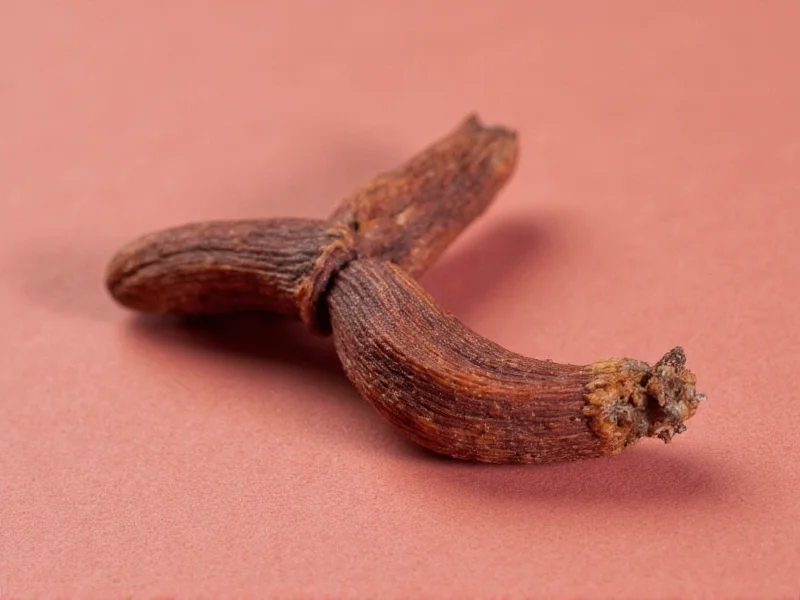Cloves possess one of the most recognizable flavor profiles among spices, characterized by their potent combination of warmth, sweetness, and pronounced spiciness. Understanding what does a clove taste like requires examining both its immediate sensory impact and how it interacts with other ingredients in culinary applications. This distinctive spice, derived from the dried flower buds of the Syzygium aromaticum tree, has been valued for centuries not only for its flavor but also for its preservative qualities and medicinal properties.
The Complete Flavor Profile of Cloves
When you bite into a whole clove (though this isn't recommended due to its intense flavor), you'll experience multiple taste dimensions unfolding in sequence. The initial sensation is a sharp, almost medicinal warmth that quickly evolves into complex flavor notes. Unlike many spices that emphasize a single dominant taste, cloves offer a multi-layered experience that makes them invaluable in both sweet and savory preparations.
| Flavor Dimension | Description | Intensity Level (1-10) |
|---|---|---|
| Primary Taste | Warm, spicy, slightly sweet | 9 |
| Aromatic Notes | Floral, woody, camphor-like | 8 |
| Mouthfeel | Numbing, slightly astringent | 7 |
| Aftertaste | Long-lasting warmth with subtle bitterness | 8 |
| Sweetness Perception | Mild underlying sweetness | 4 |
Why Cloves Taste the Way They Do: The Science Behind the Flavor
The distinctive clove flavor profile comes primarily from eugenol, which constitutes 70-90% of clove essential oil. This phenolic compound creates that characteristic warming sensation by interacting with TRPV1 receptors—the same receptors activated by capsaicin in chili peppers, though with a different quality of heat. Unlike chili heat that builds and fades, clove's warmth feels more immediate and numbing.
Additional compounds contribute to cloves' complex flavor profile:
- Eugenol acetate - provides floral notes
- Caryophyllene - adds woody, spicy undertones
- Vanillin - contributes subtle sweetness
Understanding what does clove taste similar to can help contextualize its unique profile. Cloves share some characteristics with cinnamon (warmth), allspice (sweet-spicy balance), and even black pepper (pungency), but none replicate its complete flavor signature. The numbing quality particularly distinguishes cloves from other warm spices.
Factors That Influence Clove Flavor Intensity
Several variables affect how would you describe the taste of cloves in different contexts:
Whole vs. Ground Cloves
Whole cloves maintain their flavor compounds longer and deliver a more controlled release of flavor when cooked. Ground cloves expose more surface area, releasing their potent oils more quickly and creating a more immediate but less nuanced flavor impact. This explains why recipes often specify whole versus ground cloves—what does a clove taste like in food differs significantly based on preparation.
Freshness Matters
Fresh cloves (within 1-2 years of harvest) have a vibrant, complex flavor. Older cloves lose volatile oils, resulting in a duller, more one-dimensional taste. Properly stored whole cloves retain flavor longer than ground varieties, which begin losing potency within 6 months.
Cooking Method Impact
The way you incorporate cloves dramatically affects their flavor expression:
- Simmering - Releases flavor gradually; ideal for broths and stews
- Dry heating - Enhances sweetness but risks bitterness if overheated
- Infusing - Creates subtle flavor in liquids like syrups or alcohols
- Raw application - Too intense for most palates; generally not recommended
Culinary Applications Based on Clove Flavor Profile
Knowing what does clove taste like compared to cinnamon helps determine appropriate uses. While both are warm spices, cloves have a more medicinal, penetrating quality that works best in specific applications:
Savory Dishes
Cloves excel in dishes where their pungency can cut through rich flavors:
- Ham glazes (whole cloves studded into the surface)
- Curry blends (particularly in Indian and Indonesian cuisines)
- Broths and stocks (removed before serving)
- Pickling solutions (complements vinegar's acidity)
Sweet Preparations
In desserts, cloves provide complexity without overwhelming sweetness:
- Poached fruits (pears, apples, quinces)
- Spice cakes and gingerbreads
- Mulled wines and ciders
- Pumpkin pie spice blends (used sparingly)
Avoiding Common Clove Flavor Mistakes
Even experienced cooks sometimes misjudge clove taste intensity level. Here are frequent errors to avoid:
- Overuse - Cloves easily dominate a dish; start with 1-2 whole cloves per pound of ingredients
- Leaving whole cloves in finished dishes - They remain intensely potent and can create unpleasant mouthfuls
- Using old cloves - Stale cloves lose complexity and develop off-flavors
- Incorrect grinding - Improperly ground cloves create uneven flavor distribution
When working with cloves, remember that fresh clove vs ground clove taste difference is significant. Whole cloves provide controlled flavor release during cooking, while ground cloves deliver immediate but less nuanced flavor. For most applications, whole cloves are preferable when cooking times exceed 15 minutes, while ground works better for quick preparations or baking.
Complementary Flavors That Balance Clove Taste
Certain ingredients harmonize beautifully with clove flavor, enhancing its positive qualities while mitigating potential harshness:
- Citrus - Orange and lemon brighten clove's warmth
- Rich fats - Butter, cream, and coconut milk mellow intensity
- Sweeteners - Honey, maple syrup, and brown sugar balance bitterness
- Other warm spices - Cinnamon, nutmeg, and allspice create balanced spice blends
Understanding clove aftertaste characteristics helps in creating balanced dishes. The lingering warmth can be desirable in mulled beverages but problematic in delicate desserts. When crafting recipes, consider how the clove flavor will evolve from the first bite through the aftertaste.











 浙公网安备
33010002000092号
浙公网安备
33010002000092号 浙B2-20120091-4
浙B2-20120091-4